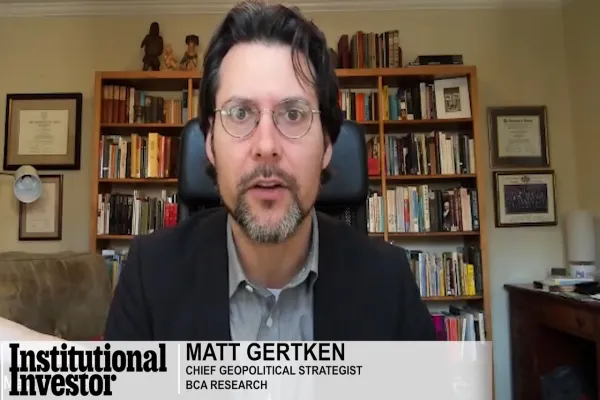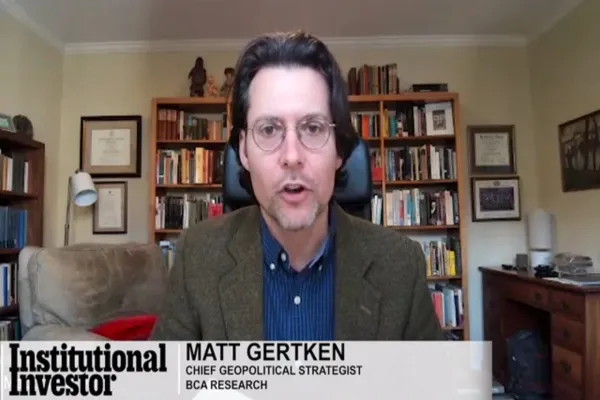"There was no regime change in Malaysia," the nation's new prime minister, Abdullah Ahmad Badawi, tells Institutional Investor. "Just a leadership change."
The politician known as "Mr. Nice Guy" is being typically modest -- and politic. In March, barely five months after the career politician was appointed acting prime minister by the strong-willed architect of modern Malaysia, Mahathir Mohamad, Badawi's Barisan Nasional coalition won 64 percent of the popular vote in federal elections, giving the alliance 90 percent of Malaysia's parliamentary seats.
"People voted for Badawi because he represents change," says Malaysian author Chandra Muzaffar, a frequent critic of Badawi's party, the United Malays National Organization, which is the dominant member of the coalition. "He has started talking about corruption, inefficiency, justice and fairness, and that has struck a chord with ordinary people, some of whom felt left out under Mahathir." Badawi's support for a moderate form of Islam also resonated with voters.
The genial, soft-spoken prime minister, 64, who served in Mahathir's cabinet for 18 years, says, "If the results of the elections are an indicator, people believe we are on the right track."
On September 1, Malaysia's Supreme Court overturned the sodomy conviction of former deputy prime minister Anwar Ibrahim, who'd been fired by Mahathir after a dispute over how to handle the Asian financial crisis and later arrested and jailed. Anwar lauded Badawi for "not interfering" with the court.
Curbing corruption is high on Badawi's agenda, although some skeptics say that his reformist zeal has waned. The prime minister has done a fair amount already. Badawi has had a former Mahathir cabinet minister and the CEO of a government steel plant arrested and set for trial on corruption charges. He has also forbidden the awarding of contracts through "negotiated bidding" -- a system with inherent conflicts of interest, in which companies dicker in private with government officials. The practice spawned several scandals. "Badawi wants greater transparency in the public sector," says his minister of Economic Planning, Mustapha Mohamed.
Badawi has begun to restructure fully -- and partly -- state-owned companies. His administration is benchmarking their CEOs against local, regional and global peers on profits, return on equity, return on assets and share price. Badawi plans to reduce or sell off the government's stakes in many of these enterprises and use part of the proceeds to help Malaysian businesses expand abroad. He sees this as "a natural progression" of development.
A less-pleasant consequence of that development also demands his attention. Throughout much of the 1990s, the government enjoyed big surpluses and was able to spend liberally on highways, airports and ports. It even built a new administrative capital, Putra Jaya, outside Kuala Lumpur. But after several years of pump-priming and a Keynesian expenditure spree in the aftermath of the Asian currency crisis of 1997'98, Malaysia is running a budget deficit that last year amounted to more than $5 billion, or 5.3 percent of GDP.
Badawi has no choice but to impose tighter fiscal discipline. He has proposed enhancing bureaucrats' productivity and cutting infrastructure spending to pare this year's deficit to $4.75 billion, or 4.4 percent of GDP, and next year's to $4 billion, or less than 4 percent of GDP. He promises a surplus within five years.
Other challenges confront Badawi. Malaysia relies on manufacturing for 37 percent of its $104 billion GDP -- the highest proportion of any developing Asian country -- but it is increasingly hard-pressed to compete with lower-cost China. And the country's services sector, though supplying 55 percent of GDP, isn't growing fast enough to replace a manufacturing shortfall.
Badawi is rolling out tax concessions and other incentives to boost high-value-added services, such as so-called medical tourism. Indonesians, Indians and Filipinos are flocking to Malaysia for complex operations like cosmetic and heart surgery. But more high-value-added activities will be needed.
"There are some new drivers of growth in place -- booming tourism from the Middle East, China and India, as well as regional health care, education and transportation," says Manu Bhaskaran, a director with Singapore economic consulting firm Centennial Group. "All these sectors have emerged and are prospering, but it is still too early to say whether they can fill the void left by manufacturing."
Mahathir left Badawi with a sturdy economic foundation to build on. The country boasts steel plants, a big car manufacturer and a petrochemical industry. Malaysia's state-of-the-art infrastructure makes it particularly attractive for electronics companies. Dell, Intel Corp. and Seagate Technology all have operations in the country, which ranks as the fourth-largest exporter of electronics products in the world, with $90 billion worth.
Malaysia's burgeoning trade surplus has allowed it to amass foreign currency reserves of $55 billion, equal to nearly 7.5 months of imports. Second Finance Minister Nor Mohamed Yakcop recently said that the government saw no need to abandon the ringgit's peg to the U.S. dollar. Established at the height of the Asian crisis to prevent speculation against the Malaysian currency and ensure a fixed dollar exchange rate, the peg has protected the country's exports from undue harm resulting from the dollar's decline. Malaysia has, however, abolished most of the capital controls imposed with the peg.
"Badawi may be low-key and soft-spoken, but he really means business, and once he makes a decision, he wants it executed and delivered," says Syed Hamid Albar, Malaysia's Foreign minister and a longtime cabinet colleague of Badawi's under Mahathir.
Badawi discussed his agenda with Institutional Investor Contributor Assif Shameen and selected journalists at Bangunan Perdana Putra, the vast prime ministerial complex in Putra Jaya.
Institutional Investor: How is your leadership different from that of your predecessor, Dr. Mahathir?
Badawi: I was deputy prime minister for five years, and before that I was in the cabinet for nearly 20 years. There was no regime change in Malaysia, just a leadership change. Because there was no change in government, a lot of things remain unchanged. Our success is due to the fact that our party, UMNO, and the coalition Barisan Nasional and its predecessor have been in power for a long time. Because of that, we have been able to introduce many long-range policies that bear fruit after ten or 20 or even 30 years. In some countries, because political parties don't believe they will remain in power for a long time, they only introduce short-term policies that basically achieve nothing. While there is continuity, every leader has to take into account the new realities and new challenges facing the nation. Although everyone has his own unique style, I believe really it is the substance that counts. Fairness and justice are key to the substance that we are trying to deliver.
You have said you want Malaysia to have world-class companies. What is the government doing to help corporate Malaysia become globally competitive?
The engine of growth is the private sector, and the government doesn't want to intervene. They know best how to run their companies. One of the things I have addressed is the issue of GLCs, or government-linked companies. The GLCs account for more than one third of the total market capitalization of listed companies in Malaysia. We have put in place new CEOs and given them specific goals and targets. With a higher level of corporate governance, higher targets and benchmarking against the private sector and the systems we have to monitor these companies, we believe their performance will improve. I want our GLCs to go abroad, make acquisitions, compete with global players and expand, because I feel they need to spread their wings and become globally competitive. Some of our GLCs already have operations overseas. We feel it is a natural progression.
There has been criticism of crony capitalism in Malaysia. In the past many firms were awarded contracts without proper bidding. How do you avoid one set of cronies being replaced by another set when a new leader takes office?
We can do more in the area of transparency. I have instituted open tenders [for contracts] rather than selecting from among the bidders. We want the best man to win. As for companies that have already won contracts, we are duty-bound to honor the sanctity of the contracts. But if we have a problem after a contract has been signed, then there is nothing wrong in talking with those companies.
Skeptics say that your campaign against corruption has fizzled out after a good start. Are they correct?
I don't pay attention to skeptics. I don't like corruption, and that's why we will continue with the fight. Corruption adds to the cost of doing business, makes us less competitive and hurts the country. Some well-known people, including a former minister, were charged earlier this year with criminal breach of trust. He is awaiting trial. When I assumed office I set up a committee to recommend further measures to fight corruption. We have anticorruption agencies in place, and we have laws in place. We have introduced forensic accounting as part of developing capacity to fight corruption. Of course, there will be skeptics who will say we are not doing enough, but we are doing a lot, and we will do more.
Can Malaysia remain competitive without its previous high level of foreign investments -- from Japanese companies, for example, that are relocating business to China?
The Japanese still maintain a very strong commitment to Malaysia, and their investment is still at a fairly high level. They have constantly been upgrading their manufacturing plants, investing more money. I am not aware that they are pulling out of Malaysia. There have been some facilities that have relocated to China, but that's because they probably are labor-intensive. As we develop, some of the lower-end manufacturing will continue to move to less-developed countries like China or India. China is a big country, and it has attracted a lot of foreign investments, but foreign investments are still coming to Malaysia, and companies that already have a big presence in Malaysia are among the biggest investors in upgrading and expanding their plants.
What are some of your other big economic priorities?
First, emphasis on what I call "software," or the mind-set of the people. As a nation, we have already progressed tremendously in terms of "hardware." Much of the physical infrastructure in Malaysia, whether it is the new capital of Putra Jaya or the KLIA [Kuala Lumpur International] Airport or the Petronas Twin Towers, is first-class. We have already built much of the infrastructure we need for now. I feel that in order to be a truly developed nation we must have a society that also has a first-class mentality. "It's no point having first-class infrastructure and a third-world mentality.
Second, I want to see more-balanced growth. I would like to see our rural population equally share in the prosperity that economic growth has brought. This is why I have been constantly talking about the importance of agriculture as a source of new income and new wealth. We want to modernize our agriculture. Third, we have identified new areas of growth, like biotechnology. Last, I want to emphasize building our human capital through education reforms and brain-gain initiatives that will help bring the best and brightest Malaysians home.





